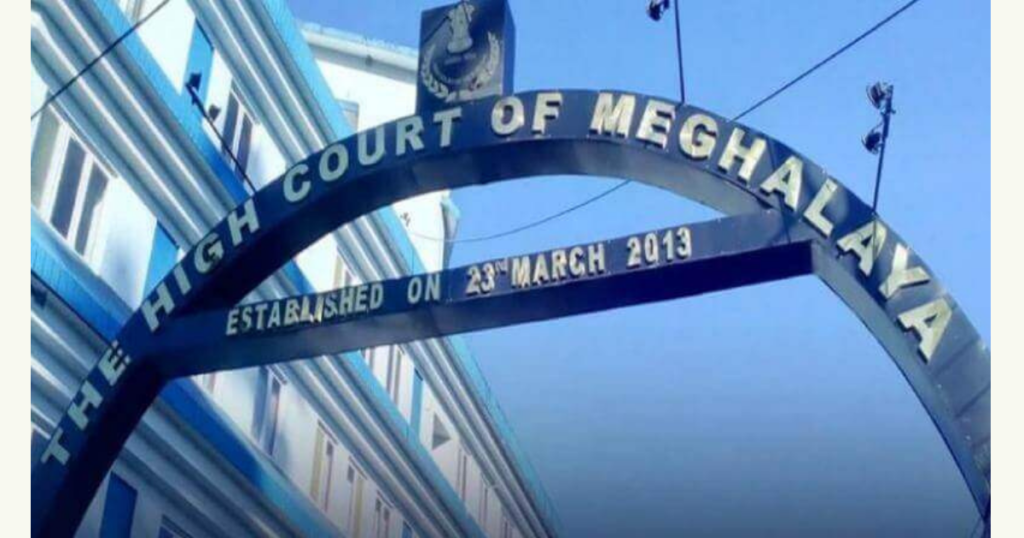Meghalaya High Court rules Aadhaar is not mandatory for SC/ST scholarships. Students can now use PAN, voter ID, or passport for financial aid access.
In a landmark interim decision, the Meghalaya High Court has ruled that students belonging to Scheduled Castes (SC) and Scheduled Tribes (ST) in the state cannot be denied access to scholarships and educational financial aid due to the lack of an Aadhaar card. The court directed the state government to accept alternative identity documents such as PAN cards, voter IDs, or passports, offering much-needed relief to students facing delays or hurdles in Aadhaar registration.
The order was passed by a division bench comprising Chief Justice IP Mukerji and Justice W Diengdoh during a hearing on a public interest litigation (PIL) filed by Greneth M Sangma. The PIL challenged a notification issued by the Meghalaya government on October 31, 2023, which made possession of an Aadhaar number mandatory for students seeking benefits under the Fees Compensation for Post-Matric Scholarship Scheme.
Concerns Over Aadhaar-Based Exclusion
The petitioner argued that the government’s insistence on Aadhaar as the sole means of identity verification violated the spirit of the Supreme Court’s judgment in the K.S. Puttaswamy case (2018), which reaffirmed an individual’s right to privacy and limited the scope of Aadhaar’s mandatory use.
Citing the Aadhaar Act, 2016, the petitioner pointed out Section 7, which clearly mandates that “if an Aadhaar number is not assigned to an individual, the individual shall be offered alternate and viable means of identification” to access government subsidies, benefits, or services.
In agreement, the Meghalaya High Court observed that “prima facie, it does not follow that non-possession of an Aadhaar number disentitles an otherwise eligible individual from receiving benefits.” The court emphasized that the absence of an Aadhaar card should not become a barrier to education and financial support, especially for those from economically and socially marginalized communities.
Interim Relief for Students
With this ruling, the court has made it clear that the Meghalaya government can no longer insist on Aadhaar as the only valid ID for SC/ST students applying for scholarships or fee waivers. While Aadhaar may still be requested for easier verification, the state must now accept alternative identity documents — including voter ID cards, PAN cards, and passports — from students unable or unwilling to obtain Aadhaar.
This interim order has wide-reaching implications, particularly for students living in remote or tribal areas who often face difficulties in Aadhaar enrollment due to lack of infrastructure or documentation.
Impacts Beyond Meghalaya
Significantly, the court also noted that the PIL is “bound to have all India ramification”, suggesting that its outcome could influence similar cases across other states. Over the years, many state governments have made Aadhaar mandatory for availing various educational benefits, leading to complaints of exclusion, delays, and harassment — especially among tribal and low-income populations.
Legal experts believe that the Meghalaya HC’s observation may strengthen the national discourse around inclusive implementation of welfare schemes, especially those linked to the right to education and social justice.
Next Steps: Final Hearing in August
While this is an interim relief, the final outcome of the case will be determined after a detailed hearing scheduled for August 12, 2025. The court plans to undertake a comprehensive review of the Aadhaar Act, the state’s scholarship policy, and relevant Supreme Court rulings before passing a final judgment.
Until then, the order ensures that no eligible SC/ST student in Meghalaya is denied access to scholarships or fee compensation solely due to the absence of Aadhaar. Students will be required to furnish other government-approved documents to establish identity and residency to the satisfaction of state authorities.
This judgment has been widely welcomed by student groups, educators, and activists who have long voiced concerns about digital exclusion and rigid documentation norms in education welfare schemes. For now, it marks a progressive step toward making education accessible and inclusive for all.

Also Read: SSC exam 2025: Commission issues detailed guidelines for candidates, Check details here